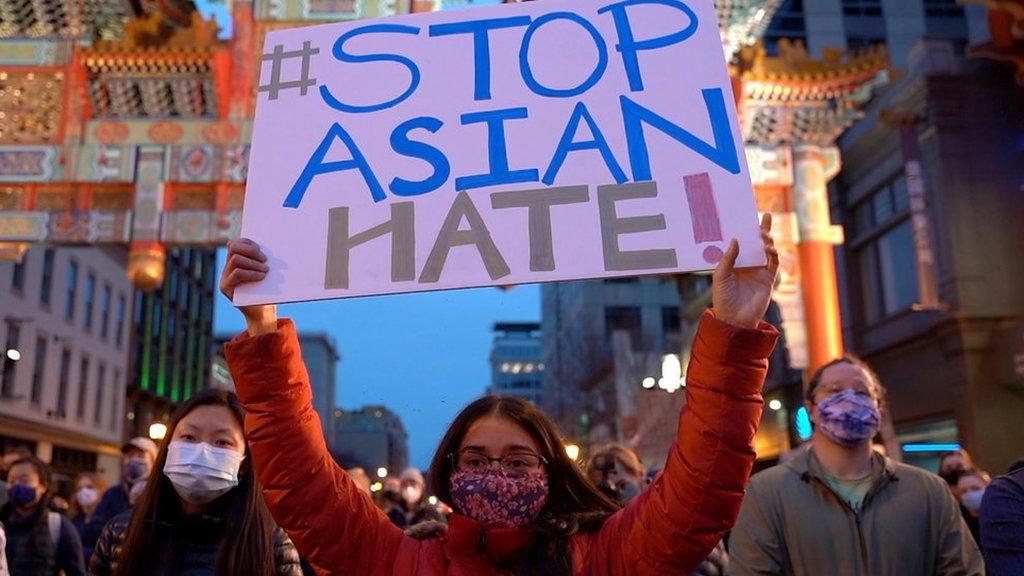Atlanta spa shootings: How we talk about violence
- Published
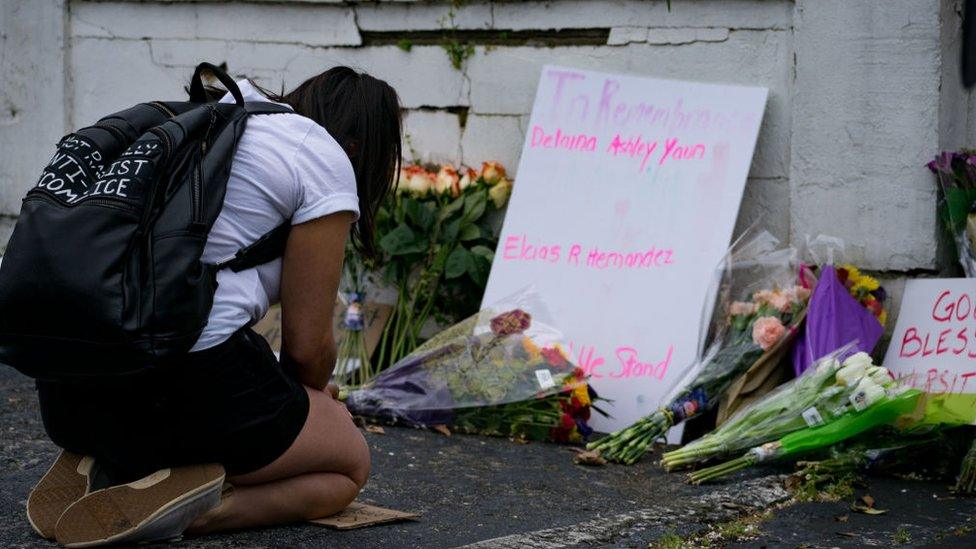
Flowers and signs adorn Gold Spa where activists demonstrated against violence against women and Asian Americans following Tuesday night's shooting
In the wake of the Atlanta shootings, police offered early explanations for why the deadly rampage had occurred. But some experts say the speculation around motive drew from harmful stereotypes.
The morning after the Atlanta spa shootings, local law enforcement called a news conference. The suspect, 21-year-old Robert Aaron Long, had confessed to the shooting rampage, police said, in which eight people were killed, six of them Asian women.
Asked by reporters about a possible motive, Cherokee Police spokesman Capt Jay Baker replied that Mr Long had denied a racial motivation.
The gunman said he was struggling with a sex addiction, Capt Baker said, and had attempted "to take out that temptation".
"Yesterday was a really bad day for him, and this is what he did," Capt Baker said.
Those responses, in the wake of the deadly tragedy, caused anger.
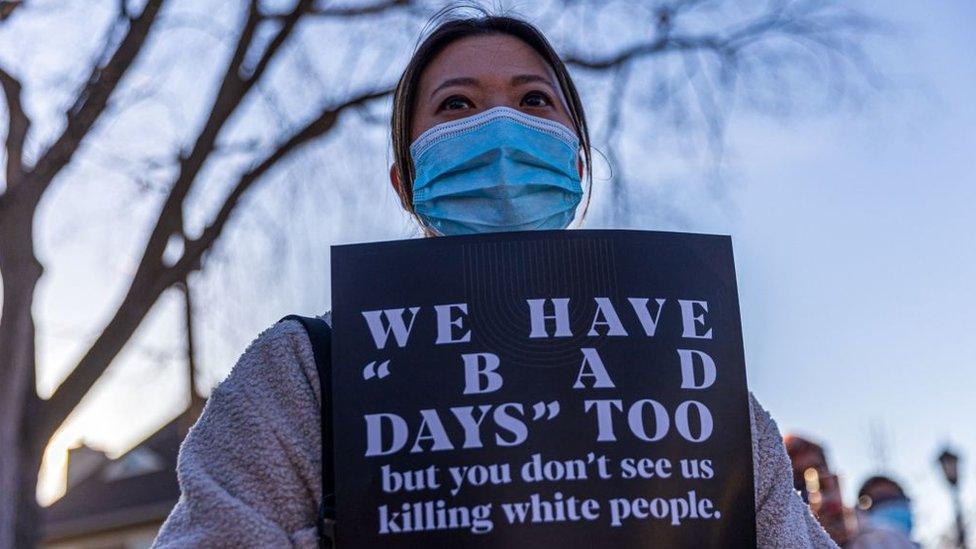
Police spokesman Jay Baker has been moved off the case after saying the assailant had a "bad day" prior to the shooting
It was also later discovered that Capt Baker had made controversial Facebook posts related to China and the coronavirus. By Thursday, the Sheriff's office had formally apologised and Capt Baker had been moved off the case.
To many, the news conference as a whole followed a well-worn storyline. Here is what three experts in Asian-American studies said they heard.
'This is still early, but he does claim that it was not racially motivated.'
As news of the shooting spread, it soon became clear that at least six of the victims were Asian-American women, targeted in Asian-owned businesses.
The ethnicity of the victims - combined with the recent rise of hate crimes against Asian Americans - gave way to a prevailing theory in the media and online: that the shooting had been racially motivated.
But the notion was cast into doubt by Capt Baker as he relayed the suspect's testimony.
"During our interviews, we asked that specific question, and that did not appear to be the motive," Capt Baker said.
The answer - and Capt Baker's confidence - was "striking", said Ellen Wu, a professor of history and Asian-American studies at Indiana University.
"It's a complete disavowal."
Letting Mr Long decide for himself whether race was involved ignores the tacit expressions of racism in the US, said Vivian Truong, a historian and post-doctoral fellow in Asian studies at Vassar College.
Atlanta shootings: "It's scary just to be an Asian American woman"
"Just because someone doesn't come out and say 'I was targeting these women because of their race' - there's still a deeper history of Asian American women being associated with hyper-sexuality, with this kind of immoral or corrupting influence," Ms Truong said.
And attention has been turned to the suspect, his thought process and his version of events.
"I'm tired of this focus on motivation," Prof Wu said. "I think we should think about the impact, the consequences, and look at the outcome of what happened - that eight people are dead."
'It's a temptation for him that he wants to eliminate.'
According to police, the massage parlours terrorised by the suspect were outlets for his reported sexual addiction.
"It's something that he shouldn't be doing," Capt Baker said of the gunman's mindset. "He was attempting to take out that temptation."
Experts say "temptation" is a loaded term.
"That word, temptation, points to a long history of the evil within our midst," Prof Wu said.
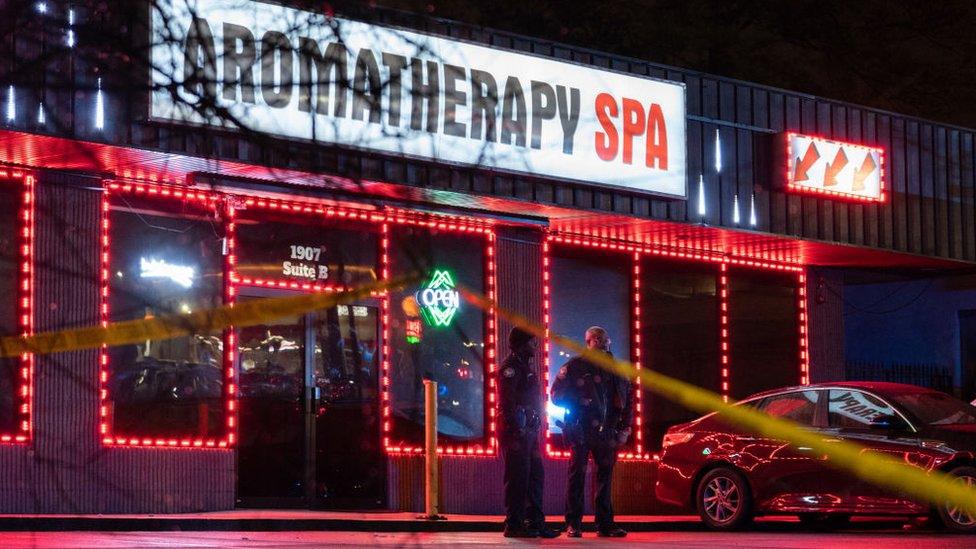
Early explanations for the deadly Atlanta shooting by police sparked outrage
Both Prof Wu and Ms Truong cited the 1875 Page Act, one of the earliest pieces of federal law restricting immigration to the US.
On paper, the legislation barred the entry of any woman from China, Japan "or any Oriental country" for "lewd and immoral purposes", including prostitution.
In reality, the law blocked virtually all immigration from Asian women, who were collectively presumed to be sex workers or prostitutes.
This racist and sexist stereotype that they "were bringing their immorality to the US", Ms Truong explains, has lingered.
And describing a "temptation" that haunted the suspect pushes responsibility away from him and on to the women he killed, she says.
Framed this way, the problem is "the existence of these massage parlours, or the actions of these women", said Ms Truong. "The issue is not with him."
'He understood the gravity of it. He was pretty much fed up and at the end of his rope and yesterday was a really bad day for him and this is what he did.'
When Mr Long embarked on his shooting spree, Capt Baker said he "may have been lashing out".
The night he killed eight people had come at the end of a "really bad day for him", Capt Baker continued. "And this is what he did."
Ms Truong said this was the quote that struck her - that the murder of eight people could seemingly be blamed on a "bad day".
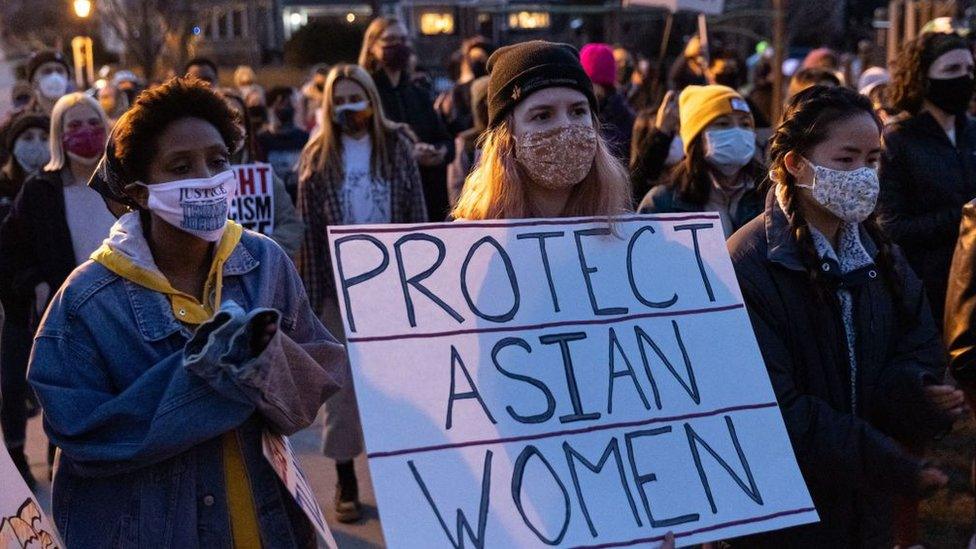
The shootings have prompted demonstrations across the US
There's a parallel, Ms Truong said, in this week's statement and one made during the trial of former Stanford student Brock Turner, who was convicted in the sexual assault of Chanel Miller.
In court, Turner's father argued that his son should not have to go to prison for "20 minutes of action" - referring to the rape of Ms Miller.
These acts of violence are cast as "temporary lapses by these white men," Ms Truong said.
The message is that these men are innocent, except for that one bad day.
Related topics
- Published21 May 2021
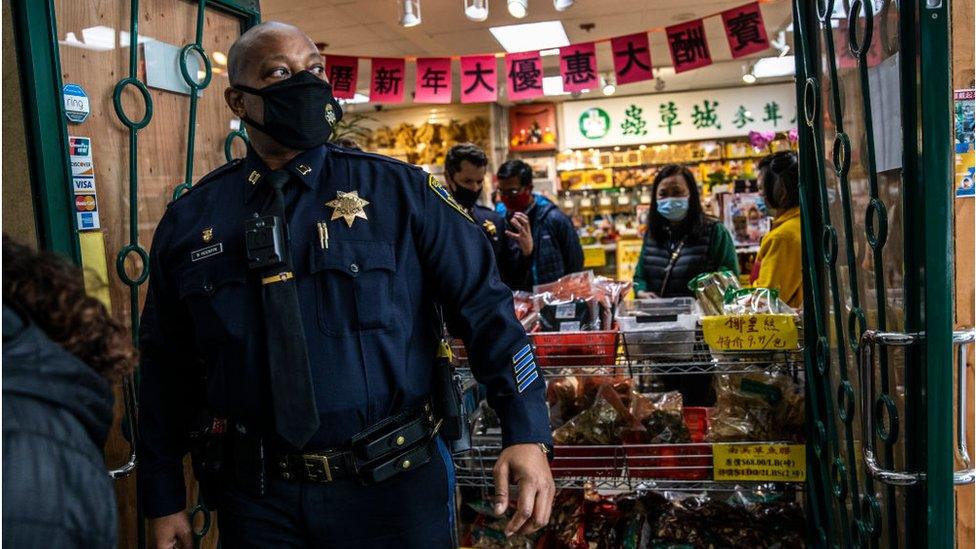
- Published22 March 2021
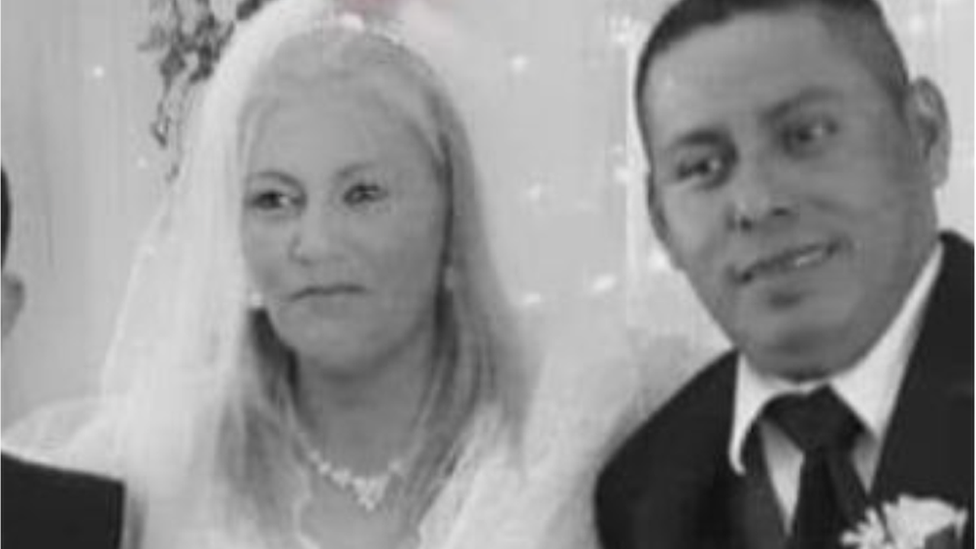
- Published19 March 2021
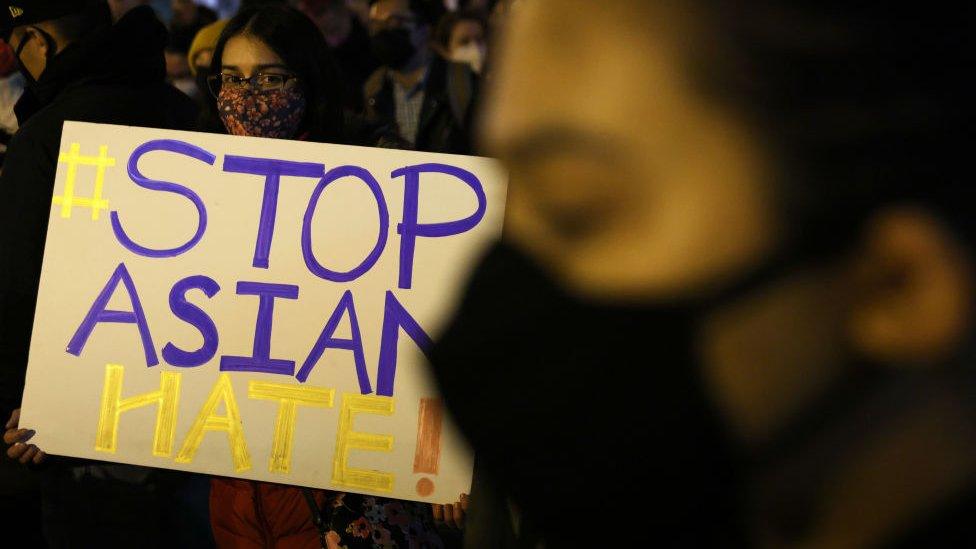
- Published18 March 2021
